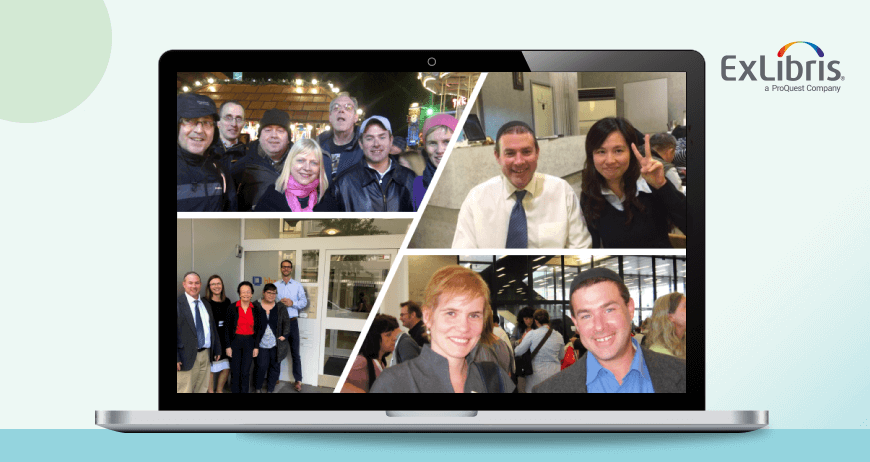October marks Global DEIA Awareness Month, a time to reflect on the importance of Diversity, Equity, Inclusion, and Accessibility (DEIA) across all sectors, including libraries, universities, and organizations. At Ex Libris™, a part of Clarivate™, we are proud to support this initiative, underscoring our commitment to creating equitable and inclusive library systems.
The value of DEIA in libraries cannot be overstated. Our commitment reflects the missions of the American Library Association (ALA) and the National Information Standards Organization (NISO), to foster a diverse and inclusive environment, crucial for ensuring that libraries serve all communities effectively. This shared vision aligns perfectly with our goals at Ex Libris, where we recognize the vital role of diverse perspectives in shaping our products and services.
Our focus on DEI is not merely theoretical; we are actively working with our community to ensure our systems serve everyone equally. We understand that unintentional bias can permeate data, products, and algorithms. Thus, we employ a multi-faceted approach to mitigate this risk. Our strategies include conducting periodic reviews of our reviews of the services we provide to prevent objectionable material and associations as well as engaging in a critical approach that revises itself to ensure wider impact and enlargement of perspectives and communities as our world changes. Additionally, we enable customer reporting and feedback mechanisms, which allow us to continually improve our offerings based on user input.
The Ex Libris DEIA Advisory Group
One of the cornerstones of our DEIA efforts is our close collaboration with our DEI advisory committee and various user groups. By engaging with library professionals and communities, we can align our initiatives with their values and represent diverse populations accurately. This collaborative spirit is essential as we strive to create services that reflect the richness of the communities we serve.
One of our top concerns is to ensure that our systems are built for and serve everyone equally. We are cognizant of the fact that unintentional/unconscious bias can be present in any product, system, algorithm, including ours.
Our DEIA Advisory Group consists of Ex Libris leadership members along with user group members representing college and university libraries of various sizes. This ensures there is always a designated time and place for members to focus on specific DEIA issues and advocate for their users, in ways that go beyond the established requirements, as accessibility around which protocols and standards have already been developed.
Rather, these conversations often serve as a learning opportunity to understand the real-life challenges of members of the library community with various needs and backgrounds, and then work together to develop solutions within our products and services to meet those needs.
Together with the community, we have been able to introduce changes to our products such as using inclusive language in our products and removing outdated terminology. We have been able to embrace our services with a direct focus on DEIA such as discussion on collection development under the lens of expansion and diversity. We have included other vocabularies in our library products such as the Homosaurus, bringing them into the mainstream communities that were not included before. DEIA has impacted our community’s enhancement engagement, and we see more new ideas for our products coming out of discussions. We also acknowledge that there is much more still to be done, and we will continue to work with our community by continuing this journey.
Collaboration with experts and other committees
We also take pride in providing thought leadership on DEIA topics. Our recent webinar featuring Prof. Safiya Noble tackled pressing issues in technology and libraries, showcasing how systems impact various groups and how we can promote inclusivity. Training our teams on DEIA principles and using inclusive language guidelines further underscores our commitment to best practices in this area.
A notable highlight in our DEIA journey is the recent appointment of Judith Fraenkel, our Senior Director of Product Management, as the new Chair of NISO’s DEIA Committee. Judith’s extensive background and dedication to library software solutions and DEIA initiatives uniquely position her to lead a committee of 24 volunteers who will champion social justice and belonging across all NISO activities. Her vision is clear: to create an inclusive environment that fosters positive change throughout the library and information community.
“I am deeply thankful and honored for the opportunity to chair the DEIA committee of NISO,” Judith stated. “It’s exciting to help drive initiatives that reflect NISO’s commitment to creating an inclusive and equitable environment for all.”
Her leadership will guide the committee as it develops, maintains, and publishes technical standards related to publishing, bibliographic, and library applications, ensuring that DEIA principles are woven into the fabric of these essential resources.
As we move forward, our commitment to DEIA at Ex Libris will continue to evolve. By drawing on community input, engaging with industry standards organizations, and fostering collaboration with content providers, we aim to drive meaningful change. Together, we can build systems that not only serve everyone equitably but also uplift diverse voices and perspectives.






